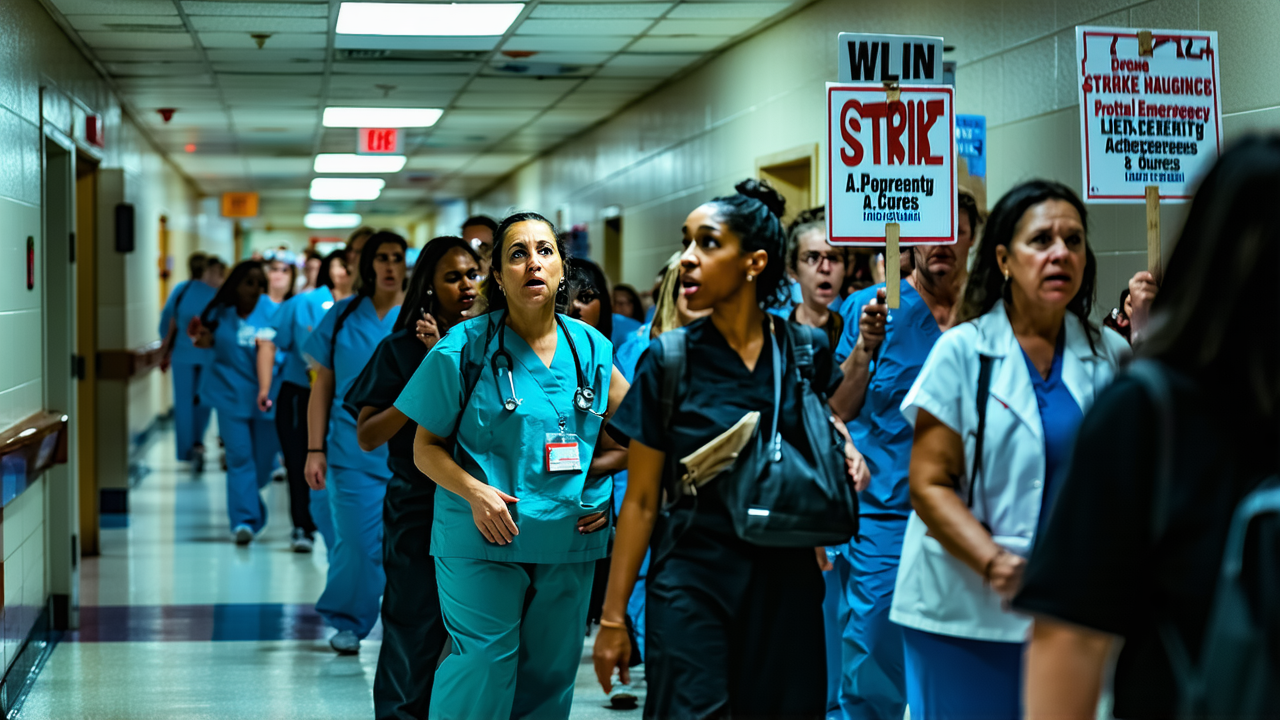Nurses Strike Over Pay and Safe Staffing Concerns, Highlighting Systemic Issues in Healthcare
Nurses Strike Over Pay and Safe Staffing Concerns, Highlighting Systemic Issues in Healthcare
More than 36,000 nurses, midwives, and healthcare assistants across the country are set to walk off the job for 24 hours starting at 9 a.m. Wednesday, marking one of the largest strikes in the healthcare sector's history. The action, organized by the Nurses Organisation, is not solely about pay but is a broader call for safe staffing levels that can ensure patient safety and dignity.
According to the union, chronic under-staffing has become a critical issue, with many hospitals struggling to meet even the most basic staffing requirements. The strike is in response to failed negotiations with Health New Zealand (Health NZ) over a new collective agreement, which has left nurses feeling increasingly frustrated and disillusioned.
Tracy Chisholm, a nurse and union delegate at Waikato Hospital, described the situation in the emergency department (ED) as dire. With more than 20 full-time positions unfilled, the ED is often overwhelmed, leading to patients waiting for hours in unsanitary conditions. Some patients, unable to move due to lack of assistance, are left in their own filth, while others wait for hours just to be seen.
Chisholm emphasized that the strike is not just about personal grievances, but about the future of the healthcare system. 'This is my health system. It's the one my parents, my children rely on. And it's not good enough,' she said. 'We're not asking for the same percentage that they've all just got in their little offices. We're just looking at the cost-of-living so we can feed our children, pay our bills and just carry on.'
Health NZ has offered a 2% pay increase this year, a 1% increase next year, and a one-time payment of $325. However, the Nurses Organisation is seeking a 3% increase this year (backdated to April 7) and a 2% increase next year (effective April 2026). The union argues that the proposed agreement's longer term (27 months) would dilute the value of the pay rise.
Paul Goulter, chief executive of the Nurses Organisation, stated that the core issue is not pay, but the failure of the government to provide the necessary funding and resources to ensure safe staffing levels. He criticized Health NZ for erasing long-standing safe staffing commitments from the collective agreement, calling the move misleading.
Data obtained by the union under the Official Information Act showed that 50% of day shifts across 16 districts were under-staffed over a 10-month period last year. This data underscores the systemic issues within the healthcare sector, with nurses feeling that their voices are being ignored.
Meanwhile, future nurses are also expressing concerns. Bianca Grimmer, national student president of the Nurses Organisation, said that fewer than half of mid-year nursing graduates had been offered hospital jobs so far. 'It's definitely nerve-wracking for me and my cohort,' she said. 'You're wondering where do I go from here? Do I apply to go overseas as well as applying for here?'
Despite the strike, hospitals and emergency departments will remain open. Most clinics, however, will be closed to ensure patient safety. Health NZ has advised patients with appointments to attend unless they have been contacted otherwise.
The strike highlights the urgent need for a comprehensive review of the healthcare system, with nurses demanding not only fair pay but also the resources necessary to ensure safe staffing levels, better working conditions, and a sustainable future for the sector.
